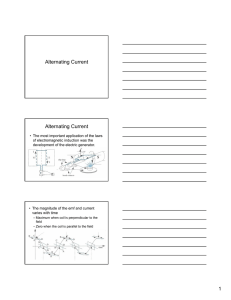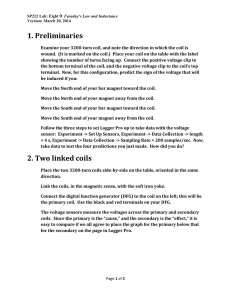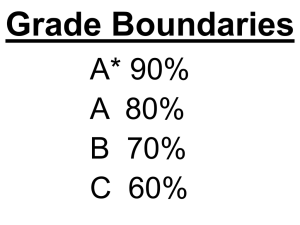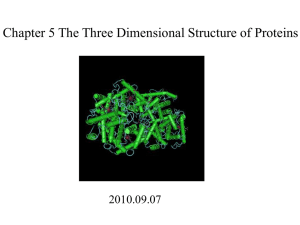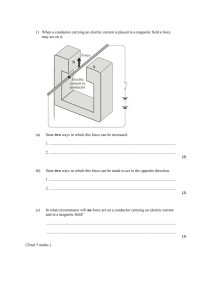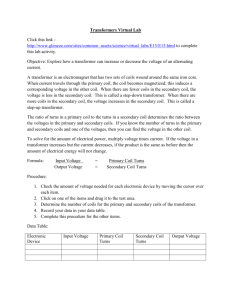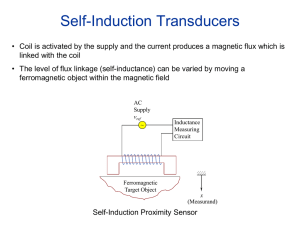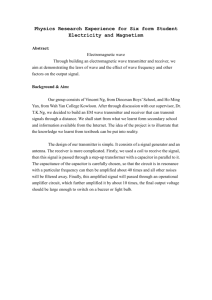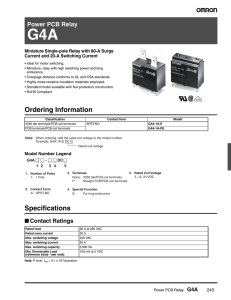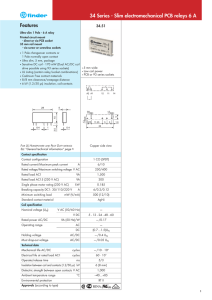Theoretical analysis of the proposed EPMC
advertisement
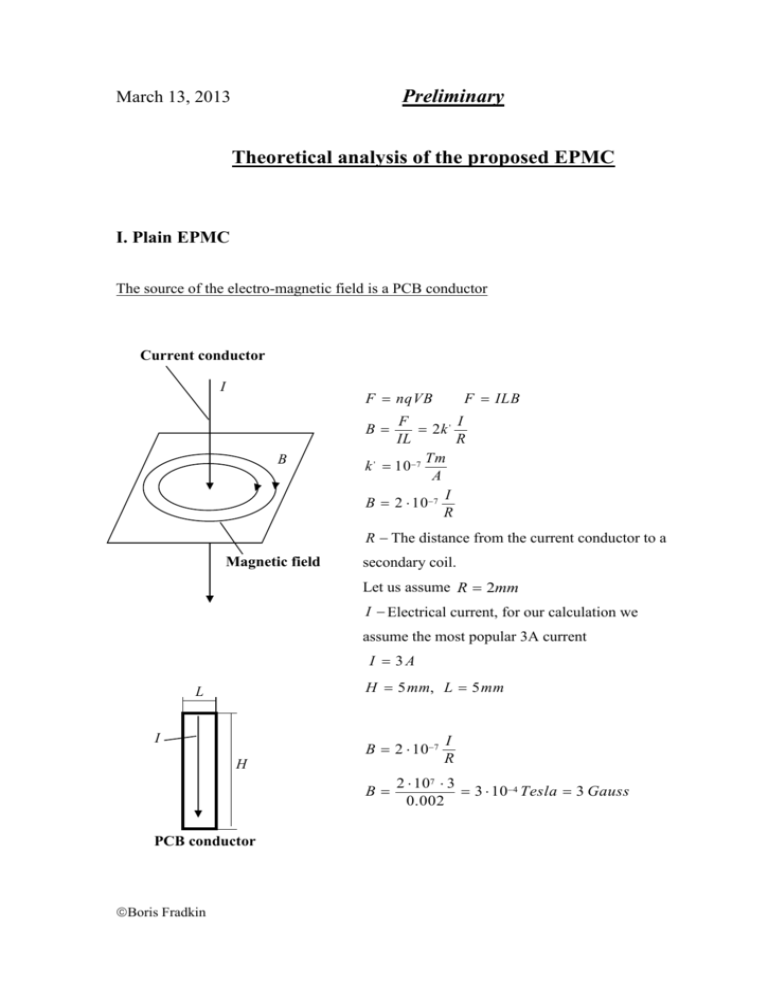
Preliminary March 13, 2013 Theoretical analysis of the proposed EPMC I. Plain EPMC The source of the electro-magnetic field is a PCB conductor Current conductor I F nqVB F ILB F I 2k ' IL R Tm k ' 107 A I B 2 107 R B B R The distance from the current conductor to a Magnetic field secondary coil. Let us assume R 2mm I Electrical current, for our calculation we assume the most popular 3A current I 3A H 5 mm, L 5 mm L I B 2 107 H B PCB conductor Boris Fradkin I R 2 107 3 3 104 Tesla 3 Gauss 0.002 The receiver of the magnetic field is the secondary coil put on the PCB conductor. Secondary coil L L H 5mm 0.2 inch n 1000 R R 1 H 2.5 mm 2 0.1inch The secondary coil is an air coil, therefore 0 4 k ' B n I L2 4 R 2 B 4 k ' 0 I B From this equation: L2 4 R 2 4 k ' n 0 I 3 104 25 106 4 6.25 106 4 3.14 107 1000 3 104 34 106 3 5.8 103 1.38mA 12.56 4 3.14 104 I Isec ondary 1.38mA Let us calculate the electrical parameters of the secondary coil: Resistance and Inductance: R Inductance: L H NR 2 9 R 10 H 1000 0.1 2 9 0.1 10 0.2 2.63 mH X L wL 2 f L 2 3.14 50 2.63 103 0.825 Resistance: We will use a 0.1mm wire. This wire resistance is 2.176 m . The length of one turn is 6 6 4 4 20 mm Total secondary coil length is: 1000 turns 20 mm 20 m Resistance R 20 2.176 44 Say total secondary coil impedance is 50 Boris Fradkin Let us use a standard for current sensors 100 load resistor. The secondary voltage to be amplified shall be: U out I Rload 100 1.38 103 0.092V Rlod R 100 50 Conclusion: The output voltage after amplification is big enough to make necessary measurements and obtain needed control voltage. 2. RCD (leakage current device) The residual current to be detected is 6mA (not 3A as in previous case). By using the same calculation technique we will obtain that the secondary voltage to be amplified will be approximately 0.18 mV. Conclusion: There is no problem to amplify this low frequency signal to obtain the necessary control voltage. References: 1. Transformer and Inductor Design Handbook Col.Wm.T.McLyman Jet Propulsion Institute of Technology, Pasadena, California 2. Electricity Part B Dr. D.Singer, David Rehgulad Publ. House Ltd 3. Magnetism Open University Library #19240, 28914 Boris Fradkin
